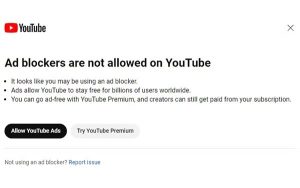Google Talks Back: Tech Giant Asks Court To Drop Suit Over Alleged Spam Bias
Google has asked a federal court to toss a lawsuit filed against it by the Republican National Committee (RNC) over alleged bias in spam-filter placement.
The RNC sued last year after an academic report showed what appeared to be unintentional bias in the spam-filter algorithms of several major email services. It also complained to the Federal Election Commission (FEC) that Gmail was censoring party emails.
But Google denies that there is any bias in its algorithms. Filed late in January, the motion to dismiss also rejects claims by the RNC that Google:
– Violated the Telecommunications Act. That Act applies only to common carriers, not to email services like Gmail, Google answers.
– Violated California’s common carrier law. But Google counters: “That novel theory fails for several reasons, including because the RNC cannot allege Gmail ‘carries’ its emails.
– Violated California’s Unruh Civil Rights Act by discriminating against the RNC. But it states that political viewpoints played no role in Google’s spam-filtering decisions
– Violated California’s Unfair Competition law. But the RNC lacks standing for this challenge, given that it does not allege fraudulent, unfair or unlawful conduct.
Google states that the RNC chose not to participate in a a pilot program during the 2022 midterm elections that would have allowed its emails to avoid otherwise-applicable forms of spam detection.
The motion to dismiss sometimes contains a patronizing tone.
“Nobody likes spam,” it says. “That is why Google uses sophisticated spam-filtering technologies to protect users of its free email service, Gmail, from unwanted and potentially dangerous emails.”
Still, roughly half of all email traffic consists of spam.
Google continues: “Contrary to the claims of the Republican National Committee (“RNC”), Google designs its spam- filtering technology to make its product better for users—not for any political or partisan purposes. Indeed, effective spam filtering is a key feature of Gmail, and one of the main reasons why Gmail is so popular.”
The motion adds that, according to the RNC: “Gmail labels some of the RNC’s emails as spam, and delivers those emails to users’ spam folders, “[a]t approximately the same time at the end of each month.” From that unremarkable fact, the RNC infers an elaborate, politically-motivated plot by Google “to secretly suppress[] the political speech and income of one major political party.”
“The RNC is wrong,” Google continues. “Gmail’s spam filtering policies apply equally to emails from all senders, whether they are politically affiliated or not. Indeed, the Federal Election Commission (“FEC”) has already rejected the RNC’s political-discrimination theory, finding that Gmail filters spam “to enhance the value of the Gmail product,” not “to influence any election for federal office.”
Gmail marks 67.5% of email from the right as spam, versus only 10.2% of those from the left, according to “A Peek into the Political Biases in Email Spam Filtering Algorithms During US Election 2020,” a study from North Carolina State University.
However, that study also stated, that “”we have no reason to believe that there were deliberate attempts from these email services to create these biases to influence the voters.”
(5)








